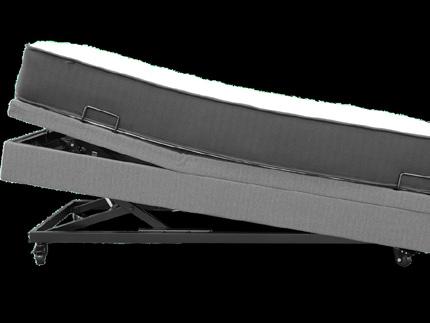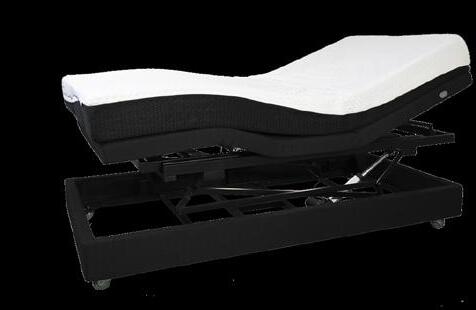
4 minute read
Three HR hotspots when managing employee leave in your OT practice
Practice owners and their staff each have rules to follow regarding employee leave:
• Practice owners must follow the applicable rules and obligations outlined in the Health Professionals and Support Services (HPSS) Award, the National Employment Standards (NES) and the Fair Work Act.
• Employees must follow the applicable rules and obligations outlined in the HPSS Award, the practice’s workplace policies and the employment contract.
This article focuses on some key HR hotspots regarding paid annual leave and unpaid parental leave.
Hotspot 1: Closing your practice over Christmas
If you plan to close your practice over the Christmas holidays, this becomes a compulsory shutdown period for your staff. You must provide your staff with at least 1-2 months’ reasonable notice of any compulsory shutdown period, and this should include directions to take a period of paid annual leave during the shutdown. The exception to this rule is when you already have a clause in the employment contract indicating that your practice has a compulsory shutdown period over the Christmas holidays. However, it’s still best practice to provide a written reminder 1-2 months prior.
Practice owners are required to provide notice and consultation to affected employees before implementing compulsory workplace shutdowns.
If an employee does not have enough accrued annual leave to cover your compulsory shutdown period, they may agree in writing to take leave without pay (leave in advance can be agreed but it’s not best practice), but you cannot direct them to take leave without pay. If the employee does not agree, they may be entitled to wages during the shutdown period.
Hotspot 2: Excessive annual leave balances
Annual leave is an entitlement for employees that is to be taken regularly to ensure they have appropriate down time and can relax. Not taking accrued annual leave can be hazardous to the health and safety of employees. Excessive accrued annual leave balances can also represent a significant financial liability for practice owners.
General options for managing excessive annual leave balances include:
• Compulsory shutdown period: you can require your staff to take annual leave during quiet periods such as over Christmas (see HR Hotspot 1)
• Direction to take leave: If an employee has accrued an excessive amount of leave, it is considered “reasonable” to direct them to take annual leave. While the Fair Work Act doesn’t define how much leave is
“excessive”, greater than four weeks can be used as a general guide. The HPSS Award also allows practice owners to direct their employees to take paid annual leave; however, it’s important to note that there is a process that must be followed.
• Cashing out of leave: Employers can cash out some of an employee’s leave balance, but only if the employee agrees to it. The agreement must be in writing and the employee can’t be left with a leave balance of less than four weeks. Staff employed under a registered award or agreement can only cash out a maximum two weeks’ leave every 12 months. Cashing out of leave is not applicable to practices or organisations that do not have an EBA or agreement in place that allows this to occur.
• Requiring employees to use leave within a certain period: Some employers ask their staff to use their leave in the same year they accrue it, by stating in their policy that if an employee builds up a certain amount of leave, they must talk with their manager about a mutually convenient time to take it. Such policies may “encourage” staff to take leave, but these can’t be legally enforced unless the requirement is deemed “reasonable”. Accrued leave can’t be lost just because an employee hasn’t used it within the stipulated time. An employee who doesn’t comply with the leave policy is still entitled to accrue leave and have it paid out on termination.
Hotspot 3: Unpaid Parental Leave
Under the Fair Work Act 2009, employees (including regular casual employees) who have worked with their employer for at least 12 months can take unpaid parental leave when they or their partner are to give birth or adopt a child, or if they experience stillbirth premature birth, or the death of a child.
Effective 6 June 2023, under the Secure Jobs Better Pay Act 2022, there are changes to how practice owners need to respond to requests for extending unpaid parental leave. Practice owners can:
• agree to the request, or
• discuss and agree with the employee to a different extension period.
These responses must be in writing within 21 days of the request.
If a practice owner refuses a request to extend unpaid parental leave, they must:
• respond to the request in writing within 21 days
• only refuse a request if:
– they’ve discussed and genuinely tried to reach an agreement – they’ve considered the consequences of refusing the extension – the refusal is on reasonable business grounds
Any employee whose requests have been refused can now seek arbitration of a dispute by the Fair Work Commission.
Best practice tip: Have a policy and keep a leave planner
It is advisable for practice owners to have systems and processes in place to plan and manage employee leave. Importantly, occupational therapy practices should have an up-to-date workplace policy, which covers all aspects of accessing leave entitlements including compulsory workplace shutdowns, directing an employee to take leave, and requesting an extension to unpaid parental leave.
Employees must request in writing to take annual leave before going on leave. The request process and notice period should be set out in your policies.
Practice owners should also review the employee leave provisions in their employment contracts and the HPSS Award on a regular basis, to ensure they are meeting their obligations and keeping up to date with any legislative changes.
For more information or assistance with managing employee leave, you can contact the Fair Work Ombudsman or seek advice from an HR consultancy that works closely with the allied health sector such as WorkPlacePLUS.
As OTA’s HR/IR partner, WorkPlacePLUS provides support to OTA members on employment matters affecting your practice. For more information, contact Anna Pannuzzo on (03) 9492 0958 or visit www.WorkPlacePLUS.com.au.
• Hi-Lo Function
• Vibration Massage
• USB Charging Ports
• Under-bed Lighting
• Low Point: 380mm (base only)
• High Point: 680mm

• 200kg Weight Rated
Ergoadjust Care

• Hi-Lo Function
• Head Tilt Position
• USB Charging Ports
• Under-bed Lighting
• Trendelenburg Positions
• 200kg Weight Rated
• Lowest Point: 380mm
• Highest Point: 670mm Premium Tencel fabric,
Adjustable Mattress









